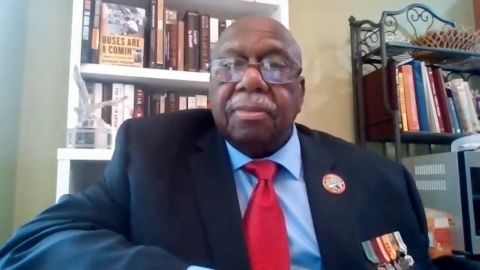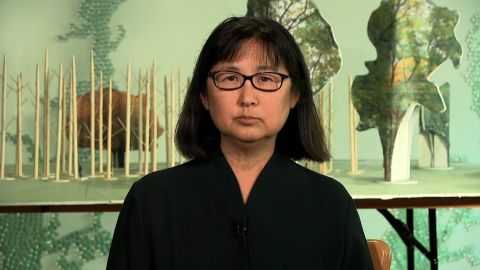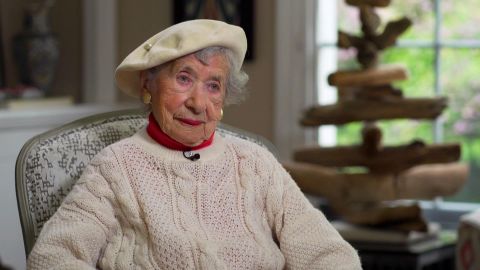Read Transcript EXPAND
CHRISTIANE AMANPOUR: What was it like there before the war? What do you remember about Holland before the invasion?
SELMA VAN DE PERRE: Well, we were not living in a particularly Jewish neighborhood. And we were not friends with only Jews. I had many girlfriends from school as well. And most of them were Catholic or Protestant. We knew one was Protestant and the other one was Catholic, and I was Jewish, and so, but it didn’t make any difference. We were just all friends. I remember that very well.
AMANPOUR: You remember everybody living together?
VAN DE PERRE: Yes.
AMANPOUR: Yes. And then everything obviously changed. The Nazis invaded the Netherlands. I think you were 18 years old.
VAN DE PERRE: Seventeen.
(CROSSTALK)
AMANPOUR: Seventeen. What did you know about the Nazis? I mean, did you know that it was then going to be dangerous for Jewish people like yourself?
VAN DE PERRE: Well, I mean, we — well, we didn’t know 100 percent, of course, because the Germans were very careful, very clever. They never told people, state or countries, what they were going to do. They just did, slowly but surely. And so we knew what had happened in Germany and Austria and Czechoslovakia, and so on, but not really. We didn’t know about the extermination camps, well, not the public did, at least.
AMANPOUR: Four days after the invasion, Holland surrendered.
VAN DE PERRE: Yes.
AMANPOUR: And, somehow, you knew that you had to get your sister and your mother to safety. What happened to you and your siblings at that time?
VAN DE PERRE: Well, not straight away after the invasion, because, as I said, the Germans were very clever. We didn’t realize what was going to happen. The Dutch thought — the whole Dutch, Netherlands government and country, people in the country, thought, the First World War, they had been not in the war, and they had been neutral. And they thought this was going to happen again this time. So people didn’t think about the worst yet.
AMANPOUR: What happened to your father?
VAN DE PERRE: Well, after a year, in 1941, the orders about — against Jews started, not being able to own the trams, on the trains, in the cafes, or the cinema, et cetera. But, in 1942, the Germans, or the Nazis, my friend says I have to say, not Germans — and the Nazis started, Germans started to call up Jewish people, first of all the German refugees and so on, and Jewish girls and boys and men. And I got my call-up on the 7th of June, my birthday, 1942.
About This Episode EXPAND
A new COVID-19 variant has emerged. Are Americans ready this time?
LEARN MORE



